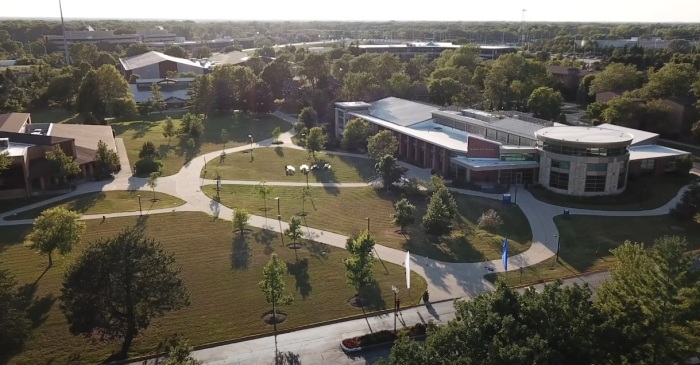
Alumni of the Illinois-based Trinity Evangelical Divinity School say they are saddened but not necessarily surprised by the announcement earlier this month that the seminary will leave the Chicago area and move over 2,000 miles away to Western Canada amid years of declining enrollment and financial concerns.
With historic roots in the northern Chicago suburbs, TEDS entered into a commitment to become the seminary of Trinity Western University in British Columbia, one of the largest Christian universities in Canada, also aligned with the Evangelical Free Church of America.
Leaving the campus of Trinity International University in Deerfield, Illinois, the divinity school plans to hold its first classes in Canada in the fall of 2026. American students still enrolled at that point can complete their degrees online.
The Christian Post contacted several TEDS alumni for their reactions to the April 8 announcement, with various sentiments being expressed.
‘Chicagoland is losing one of its strongest partners’
Eric Targe, pastor of the Near North campus of Park Community Church in Chicago, who graduated from TEDS in 2016, told CP that he “heard rumors that changes might be coming at TEDS,” though he “wasn’t expecting the news to be a move to Canada.”
“In fact, just the day before the announcement, I was meeting with a student to encourage them to consider TEDS for their MDiv after graduation,” Targe said.
“While the explanation for the move sounds reasonable and gives me hope for the school’s future in partnership with Trinity Western, I can’t help but feel deeply saddened that Chicagoland is losing one of its strongest partners in equipping Gospel ministers to serve both within and alongside the Church.”
While Targe says it’s “a great option” that some “programs will continue online,” he still believes that “there’s no true substitute for the value of in-person education.”
Ryan Mullins, a professor and author who graduated from TEDS in 2010 with a master’s in philosophy of religion, said talk of a move was occurring when he was a student in the late 2000s.
“I would hear chit chat about plans to move the campus,” Mullins recounted. “The location of TEDS is incredibly expensive. Michael Jordan had a house nearby.”
“I went to church with NFL football players. So, there was a lot of talk about the need to move the campus, but I didn’t know how serious it was at the time.”
In July 2022, Mullins did a podcast titled “The Downfall of Trinity Evangelical Divinity School,” in which he talked about the poor financial health of the school, as well as the reported mistreatment of professors at the institution.
“At that time, there were rumors of TEDS going fully online with the goal of getting rid of the remaining professors,” he noted. “The plan was called something like ‘Trinity Global,’ but no one on campus seemed to know what it was exactly. The communications office could not clearly state what this Trinity Global project was either.”
“As I spoke with different offices on campus to get an insider’s perspective, everyone sounded so defeated. It was clear in 2022 that Trinity was a sinking ship.”
Discussions of collaboration between TWU and TEDS began in the 1980s, with a vision for what was termed “TEDS Canada,” according to the TEDS announcement on April 8. However, those plans never materialized.
The move could also place TEDS in a potentially more hostile political and social environment in British Columbia, Canada, as TWU faced years of litigation over its previous policy of requiring students to agree to a “Community Covenant” that prohibited any sexual activity outside of marriage between a man and a woman. After the Supreme Court of Canada upheld the denial of accreditation to the university’s proposed law school, TWU dropped its student requirements to sign the covenant.
TEDS’s current “Community Standards” policy for its students includes a prohibition on “dishonesty, theft, pre-marital sex, abortion, adultery, homosexual behavior, and use of pornography, profanity, gossip, racism, and infringement upon the rights of others.”
It is unclear whether the divinity school will drop the requirement once the move to Canada is completed.
Mullins told CP that he is “very skeptical about the merger” with TWU, believing “it is basically a sign that TEDS has fallen” and is “the end of an era.”
“So, this alleged forthcoming move to Canada looks like the end of TEDS,” Mullins continued. “Hopefully, a few professors will be offered positions in Canada, but the language used says that Trinity Western will be free of any financial obligations when they take over TEDS. That doesn’t give me much hope.”
Peak of influence
TEDS was founded in 1897 to train ministers for what became the Evangelical Free Church of America. In 1963, the divinity school moved to Deerfield — about 30 miles north of Chicago — and was influential in shaping Evangelical clergy across denominational affiliations.
John Fea, a distinguished professor of American History at Messiah University of Mechanicsburg, Pennsylvania, graduated from TEDS in 1992 with a master of divinity and a master’s in church history.
Fea told CP that “it did not surprise me” that the divinity school is moving, noting that, following the 2023 closure of Trinity College, a residential undergraduate program of TIU, “I wondered how long the seminary would remain.”
“I lived on TEDS campus from 1989-1992. TEDS was also the place where I met my wife,” said Fea. “I credit much of my intellectual awakening to the faculty, especially professors like John Woodbridge, Harold O.J. Brown, and Scot McKnight.”
“I attended TEDS at the peak of its influence in American evangelicalism. So, no, I did not imagine this happening. Of course, that was more than 30 years ago.”
As a student, Fea said he felt that he was “studying at the center of Evangelical intellectual life,” which made his experience “exhilarating.”
“This is what has made the decline of TEDS in the last decade or so hard to watch,” he added.
Jon Weatherly, associate pastor at Twin City Bible Church of Urbana, Illinois, who graduated from TEDS in 1984 with a master of divinity, saw the school as “a center of theological education and an accessible spot for much of the United States.”
“However, I recognize acutely how fragile the business model of the residential seminary has always been and especially is right now,” he said. “The move will enable the work to continue and will probably press for more innovation to deliver effective theological education without residency.”
Despite the prominence of the school decades ago, Weatherly recalled that even long ago, when he was a student, “it was clear that financial strain was real” and that efforts back then were being made to bring about “better financial management.”
“Later, when I was working elsewhere in theological education, I had extensive conversations with TEDS personnel about our respective efforts to innovate and achieve a more sustainable model without sacrificing quality,” he explained.
“I have a close friend with connections to the EFCA national office who told me TEDS was struggling, and the closing of various units along the way seemed to portend a possible existential crisis.”
This struggle has included declining enrollment for the divinity school over the last two decades, according to figures from annual data tables compiled by the Association of Theological Schools. For the 2003-2004 academic year, TEDS had a headcount of 1,197 and a full-time enrollment of 872. However, by the 2024-2025 academic year, the headcount had dropped to 813, and the full-time enrollment had fallen to 402.
Trinity International University has faced severe financial strains and halted its residential and in-person undergraduate programs in May 2023, with TEDS and a couple of other schools continuing in-person instruction. But TIU announced earlier this month that it will close its Deerfield campus by 2026.
A broader problem
TEDS’s financial and enrollment woes are not viewed as an isolated issue, as some point to the apparent overall trend of decline among seminaries in the United States.
“Since beginning my theological education,” Targe told CP, “I’ve consistently heard a common refrain from professors: fewer and fewer students are expressing interest in pursuing vocational ministry.”
“For the past seven years, I’ve served as an adjunct at Moody Bible Institute in Chicago, where I’ve seen this trend firsthand. Each year, fewer students seem to be planning for full-time vocational ministry.”
Targe added that while he “saw no specific signs that TEDS would close its Deerfield campus, there have been broader indications across theological education that perhaps we in the local Church have not been as intentional as we should be in raising up the next generation of leaders — and encouraging them to pursue deeper theological formation.”
In addition, more people are pursuing online degrees at larger Christian institutions that were quick to embrace the rise of online learning, such as Liberty University in Virginia, which offers hundreds of different programs and has over 140,000 students (only 16,100 of whom attend in-person classes).
Grand Canyon University in Arizona, which reported only about 1,000 traditional students in 2008, was only a few years removed from nearly going bankrupt as it focused on building up its online program. In the fall of 2024, the university projected an enrollment of more than 125,000 students, with about 25,000 students studying at GCU’s ground locations.
“If, as some have concluded, the future of theological education lies in a shift toward more online and hybrid models, then it will be all the more essential to bridge the gap between the local Church and the academy,” Targe continued.
“Both must learn to collaborate more intentionally in identifying, nurturing, and equipping those who will lead after us.”
Another factor for institutions facing declining enrollment could be the falling general fertility rate in the U.S. over the last century. In 1957, the general fertility rate was 122.90 children born per 1,000 women of childbearing age (15-44), according to data from the U.S. Centers for Disease Control and Prevention. By 1987, the figure had dropped to 65.8, and in 2018, it stood at 59.10.
Regarding the move of TEDS to TWU in Canada, Weatherly told CP that he does not view the news as unique, as he has personally experienced the closure of other theology schools.
“I’ve worked for two theological schools myself. One has closed and the other attempted to merge with a failing institution, only to close it a few years later,” Weatherly said.
“I wish such stories were uncommon, but they aren’t.”


















